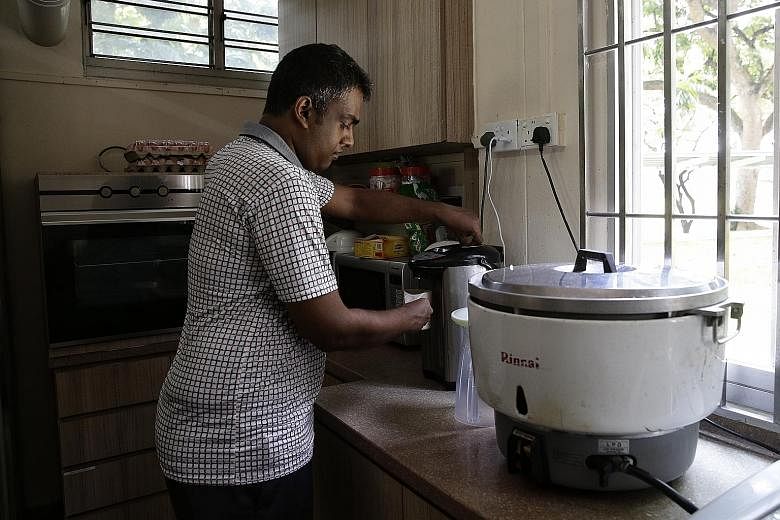Mr Muhammad Arif Mohamed may be 28 years old but he is as dependent on his parents as a child.
Because of his intellectual disability, he cannot count, tell the time and adequately express himself. But he has become a lot more independent after going to a training and development centre run by a charity, the Movement for the Intellectually Disabled of Singapore (Minds), for the past decade.
At the centre, he is taught daily living skills such as how to take care of himself. And he is taken on outings - for example, to learn how to take public transport and buy food.
His mother, Ms Ahmina Abdul Karim, a 58-year-old housewife, says: "I'm so happy he's more independent now. If he does not go to the centre, he would sit at home and never learn anything."
In the past decade, more of these centres, known as day activity centres (DACs), have been set up and more are in the pipeline.
Now, there are 25 such centres offering more than 1,300 places - up from just 870 places in 2010.
The Ministry of Social and Family Development (MSF) tells The Sunday Times that "more centres are expected" next year, ramping up the number of places to 1,800.
An MSF spokesman says the new centres will cater to people with different types of disabilities, including autism. With the growing number of children diagnosed with autism, there is a shortage of places for them in such centres after they finish their schooling, charities serving those with autism say.
Minds currently runs six day activity centres. It will open two more this year, with one centre just for adults with autism. Its director of residential and community-based care services, Ms Koh Gee May, says: "If they do not go to a DAC, they would just stay at home and their condition may deteriorate without any meaningful engagement. Here, they learn how to be more independent, to socialise, and their parents get some respite."
Over at the SPD, another charity serving people with disabilities, those who attend its day activity centre also get physiotherapy and other types of therapy to prevent their condition from worsening.
Its clients range from those suffering from cerebral palsy to stroke. It has about 60 clients in its centre now and it is converting a canteen space to accommodate 30 more.
While the benefits are apparent, the cost of providing such a service is high, given the large number of staff needed. For example, St Andrew's Autism Centre has one staff member for every three clients with moderate to severe autism.
The charity has to raise about half a million dollars a year, even after government subsidies and the fees clients pay, to cover the operating deficit of its day activity centre.
Autism Resource Centre president Denise Phua says: "Not many charities are keen to run DACs, due to the hefty fund-raising efforts needed to cover the cost."
Fees are heavily subsidised by the Government, and the lower the per capita income, the higher the subsidy. For example, Singaporean households in the lowest income group, with a per capita monthly household income of $700 or less, get 80 per cent of the fees subsidised. They pay as little as $20 to $50 a month after subsidies.
Madam Ahmina pays only $50 a month for Mr Arif to attend the Minds centre. Her husband is a security guard earning $1,500 a month.
The cost of running these centres aside, there is also the difficulty of hiring manpower, charities say. The job involves attending to the disabled people's every need, including cleaning up after them, and not many Singaporeans are keen.
Ms Koh says: "We have had staff who left after 20 minutes on the job. You need the heart to do it."
Theresa Tan

